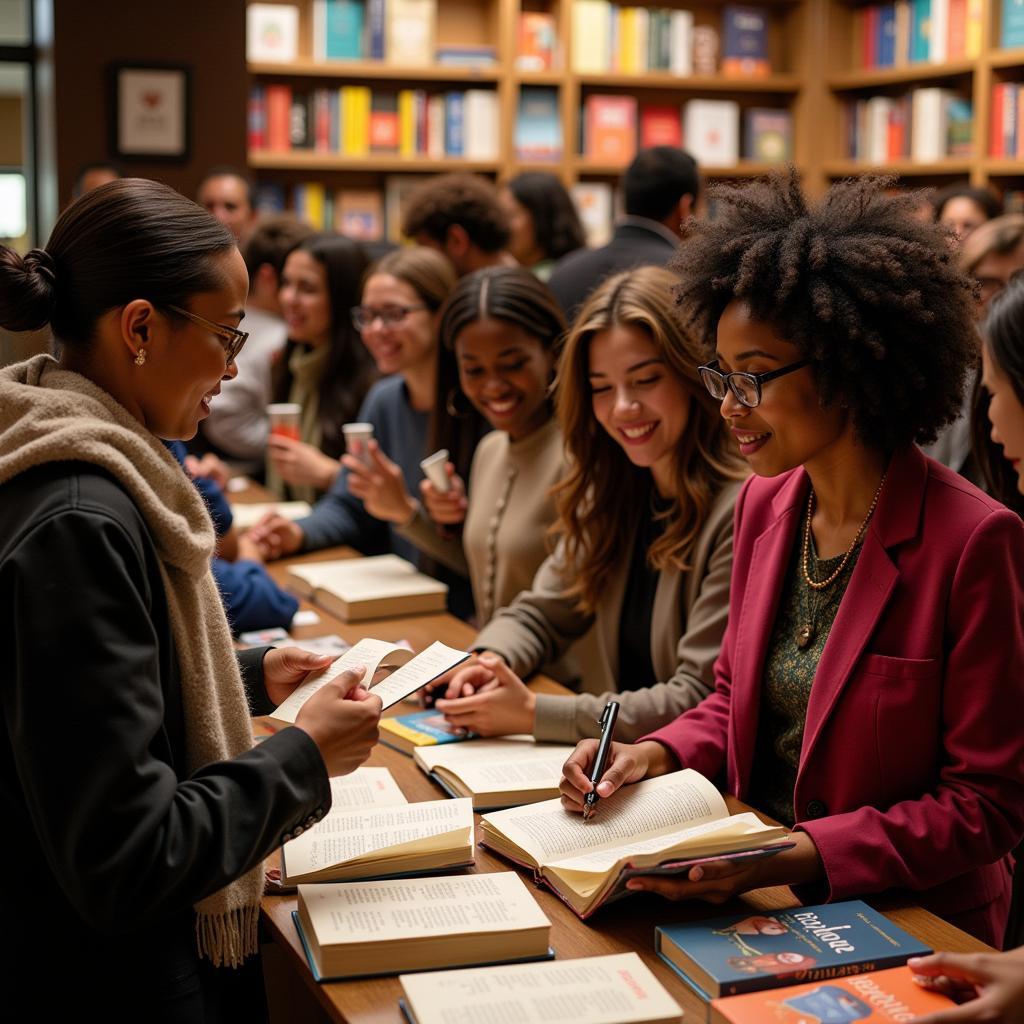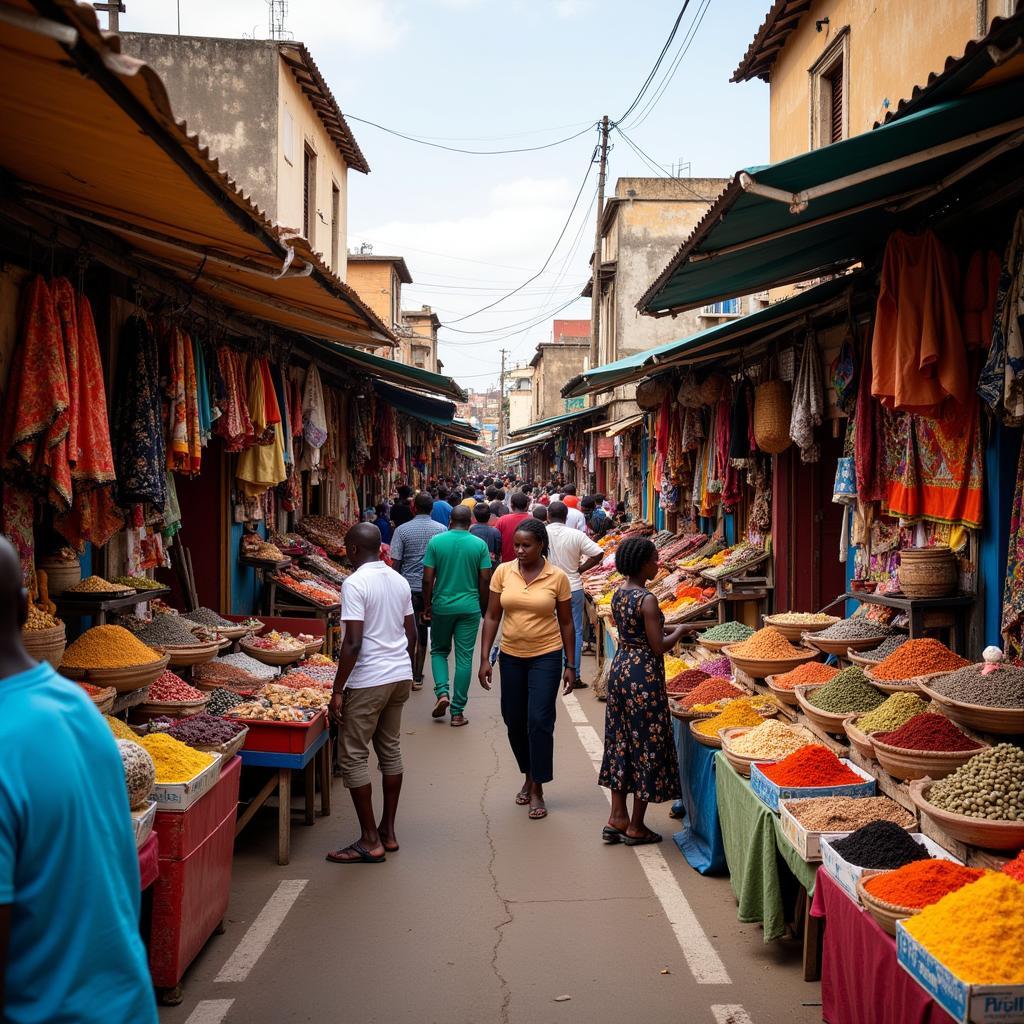5 Most Dangerous Rituals of African Culture
African culture is rich and diverse, filled with vibrant traditions and ancient beliefs. However, some of these traditions can be quite dangerous, even deadly. This article explores 5 of the most dangerous rituals still practiced in some parts of Africa today. These rituals, often rooted in spiritual beliefs and ancient practices, offer a glimpse into the complex relationship between tradition, spirituality, and the human experience in different African cultures.
Ritual Scarification: A Painful Rite of Passage
Scarification, the practice of creating intricate patterns of scars on the body, is a long-held tradition in many African cultures. While not inherently dangerous, the process, often performed without sterilization or modern medical knowledge, can lead to severe infections and complications.
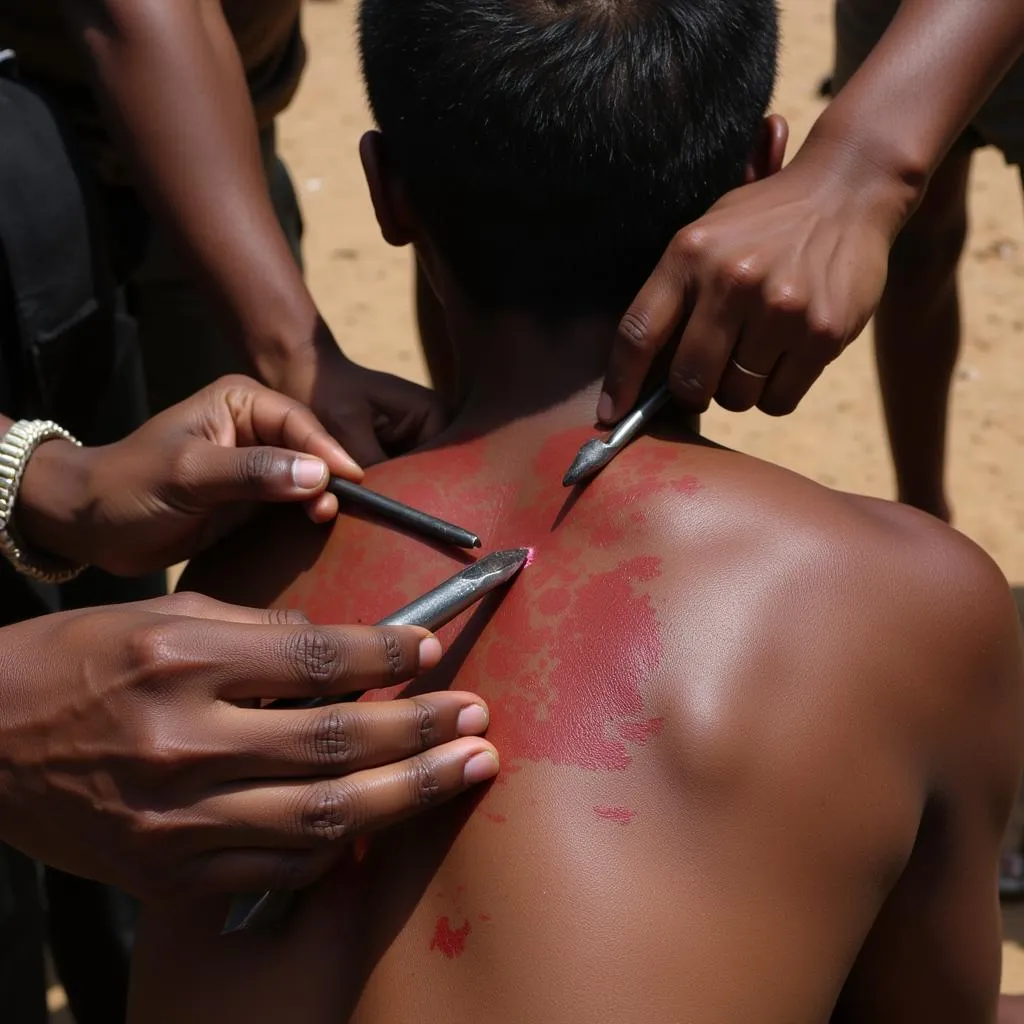 Ritual Scarification Ceremony
Ritual Scarification Ceremony
In some communities, scarification serves as a rite of passage, marking important milestones like puberty or marriage. In others, the scars hold spiritual significance, believed to protect individuals from evil spirits or enhance their connection to the divine.
The Zulu Reed Dance: A Controversial Tradition
The Zulu Reed Dance, a visually stunning ceremony in South Africa, sees thousands of young women gather to present reeds to the Zulu King. While seemingly harmless, the tradition has attracted criticism for its emphasis on female virginity and the potential for coercion and abuse.
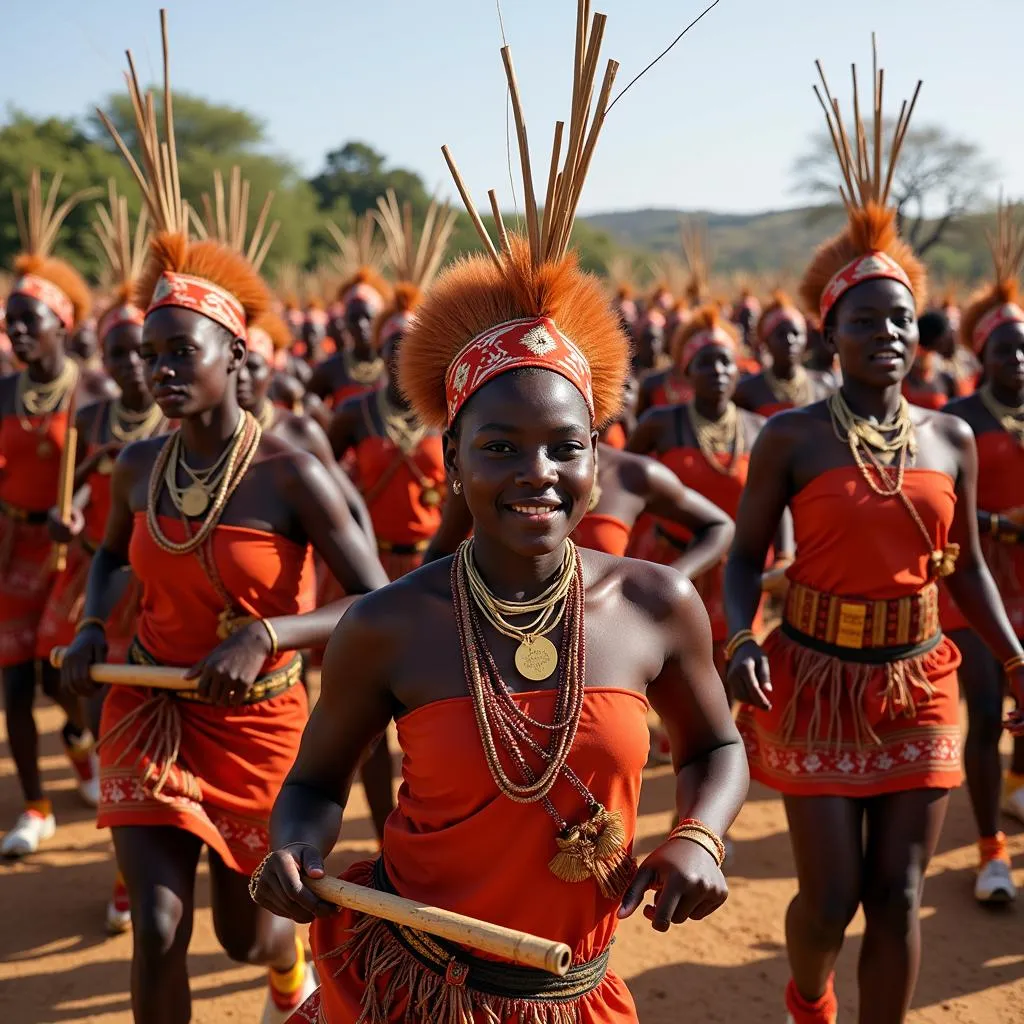 Zulu Reed Dance Ceremony
Zulu Reed Dance Ceremony
The dance, meant to celebrate womanhood and cultural unity, has become a point of contention, highlighting the complexities of preserving traditions while addressing modern-day concerns about women’s rights and bodily autonomy.
Trial by Ordeal: Justice at a Deadly Cost
Trial by ordeal, a practice where individuals prove innocence through dangerous tests, is thankfully declining but still exists in some remote communities. These trials often involve ingesting poisonous substances, enduring extreme heat, or fighting wild animals.
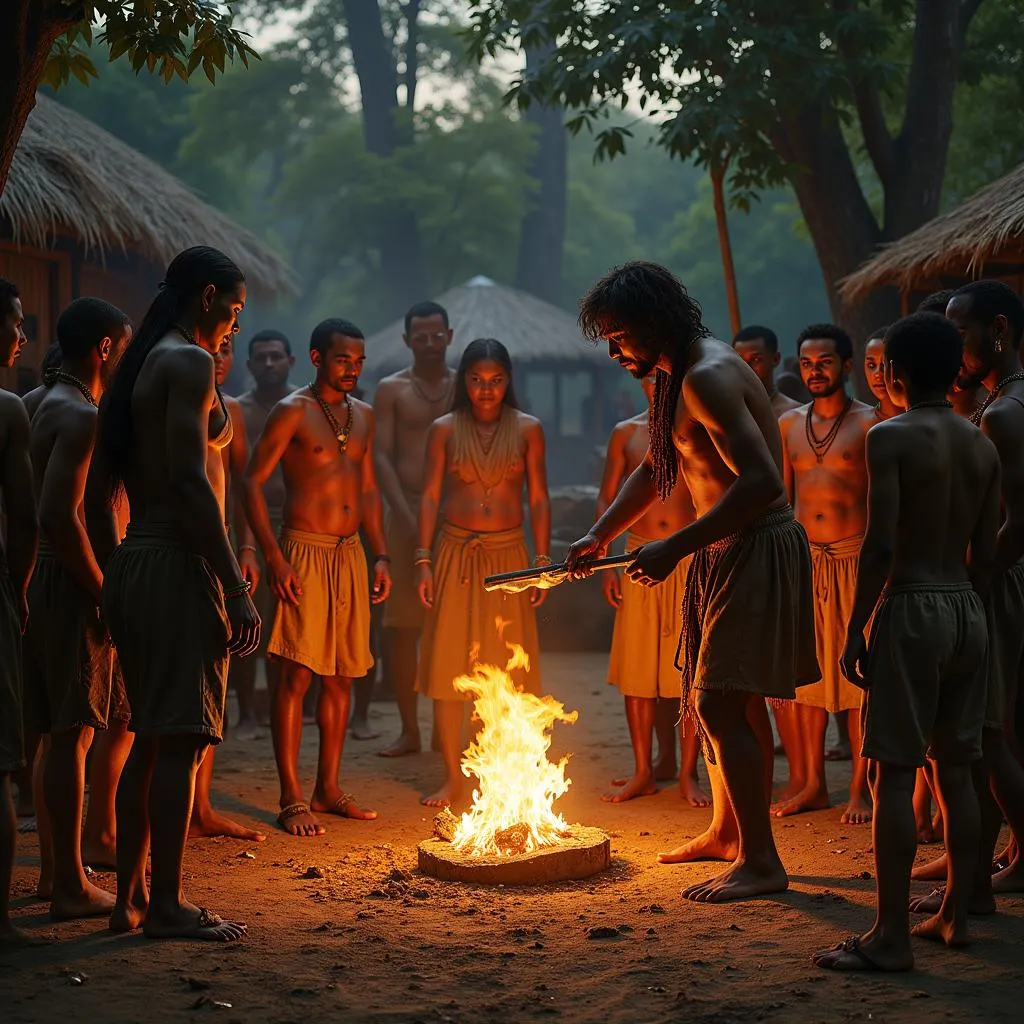 Trial by Ordeal in African Village
Trial by Ordeal in African Village
Rooted in the belief that the guilty will be punished by supernatural forces, trials by ordeal demonstrate the powerful influence of spiritual beliefs on traditional justice systems and the high price sometimes paid in the name of truth and justice.
Witch Hunts: A Dark Side of Traditional Beliefs
The fear of witchcraft is deeply ingrained in some African societies, leading to dangerous witch hunts that often target vulnerable individuals, particularly women and the elderly. Accusations can stem from misfortunes like illness or crop failure, and the accused often face violence, banishment, or even death.
These hunts, fueled by superstition and a lack of understanding about natural phenomena, highlight the dark side of traditional beliefs and the urgent need for education and social change to protect innocent lives.
Dangerous Initiation Rituals: Testing the Limits of Endurance
Many African cultures have initiation rituals marking the transition from childhood to adulthood. While most involve symbolic acts, some push the limits of human endurance, posing serious risks to participants.
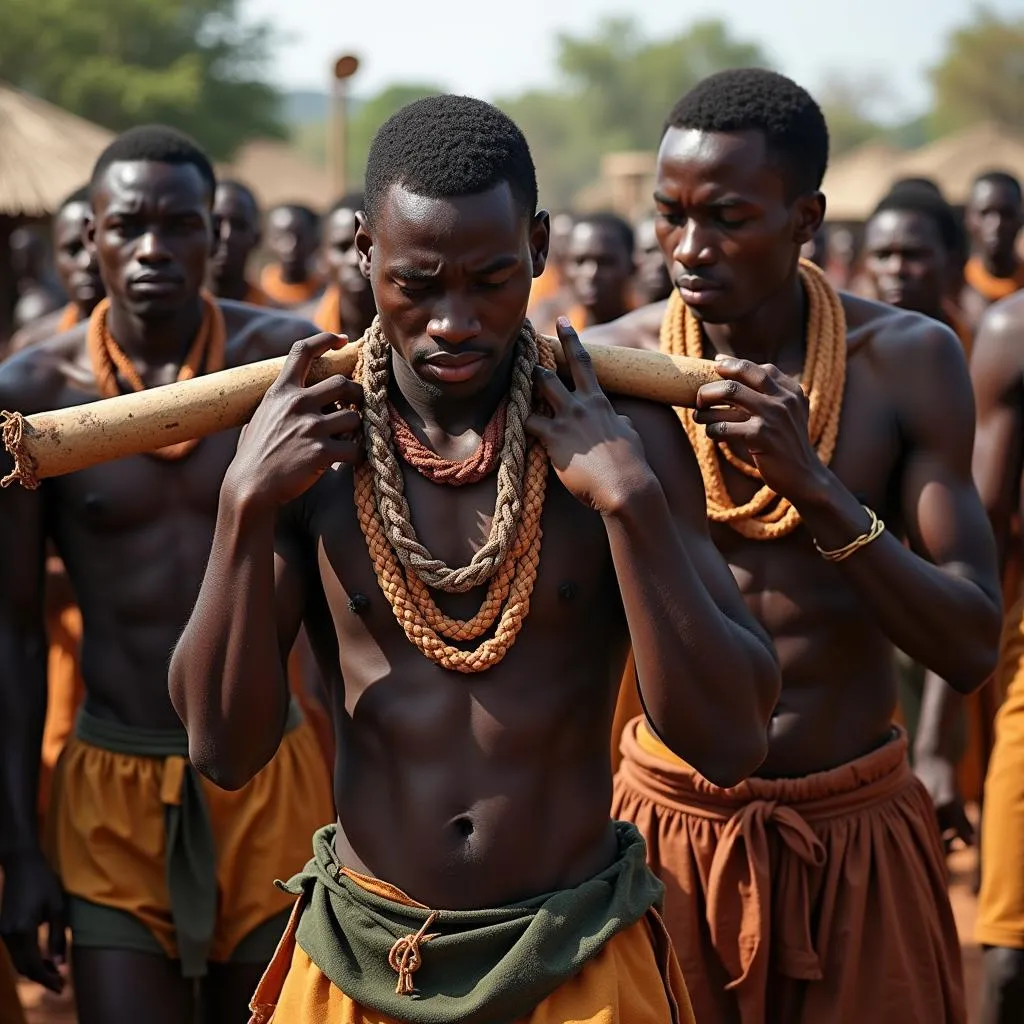 African Initiation Rituals
African Initiation Rituals
These rituals, meant to test strength, courage, and resilience, sometimes involve prolonged isolation, beatings, or dangerous encounters with wild animals. Tragically, these practices can result in injuries, trauma, and even death.
Conclusion
While the rituals described above represent a small fraction of the diverse cultural practices across Africa, they offer a glimpse into the complex and sometimes dangerous interplay between tradition, belief, and human behavior. As we engage with different cultures, it is essential to approach these practices with sensitivity and respect while also acknowledging the need to address harmful aspects and promote human rights and well-being.

